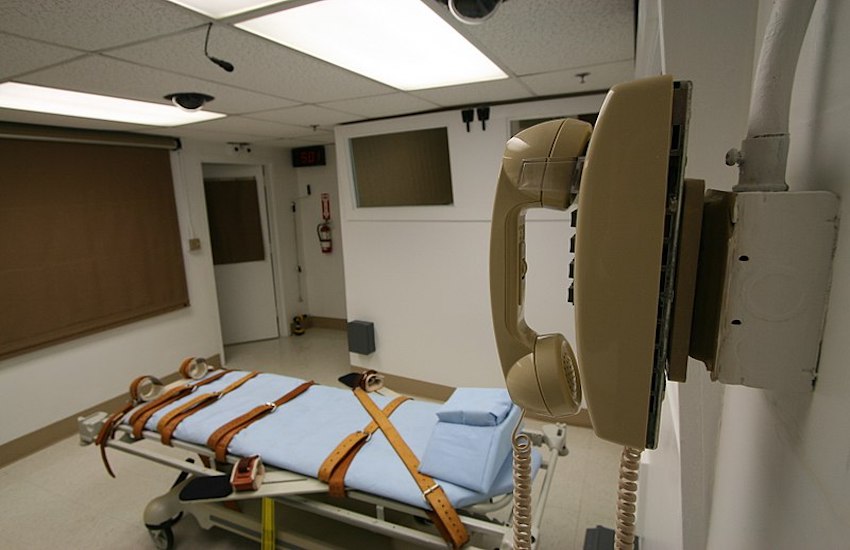Charles Rhines attempted to appeal his death penalty sentence, but the Court rejected it
Charles Rhines, a gay man from South Dakota, was convicted in the 1992 stabbing death of a donut shop worker. Instead of facing prison, the jury decided to sentence him to death.
Background
Rhines was convicted of murder in 1993. The jury was fully aware of his homosexuality. On 19 June 2018, the court rejected Rhines’ appeal against the death penalty, despite three jurors coming forward to admit their biases.
‘If he’s gay, we’d be sending him where he wants to go,’ one juror allegedly said at the time.
In the public comments of the case, Rhines’ sexuality was brought up frequently.
‘During penalty phase deliberations, the jurors sent out a note asking whether he would be allowed to “mix with the general inmate population,” “create a group of followers or admirers,” “brag about his crime to other inmates, especially new and[/]or young men . . . ,” “marry or have conjugal visits,” or “have a cellmate,”’ the Supreme Court paper notes read.
‘One juror stated that jurors ‘knew that [Mr. Rhines] was a homosexual and thought that he shouldn’t be able to spend his life with men in prison.’
‘A second recalled hearing an unidentified juror comment of Mr. Rhines “that if he’s gay we’d be sending him where he wants to go if we voted for [life imprisonment without the possibility of parole].”’
‘A third confirmed that ‘there was lots of discussion of homosexuality. There was a lot of disgust. This is a farming community.’
The appeal
Rhines appealed his sentence, citing a court ruling last year about racial biases among the jury allowing the judge to put the verdict aside. Still, the Supreme Court decided to not change the verdict, despite the role his sexuality played in the sentence.
The Court did not provide a reason as to why Rhines’ appeal was rejected.
‘The court’s silence sent a deeply troubling message about the value placed on the lives of LGBT people,’ said lawyer Ria Tobacco Mar.
‘The same rule should apply when anti-LGBT prejudice taints jurors decision-making,’ she added, referring to the racial bias ruling.
‘To be sure, the history of racism in America is unique and demands unique safeguards. But that does not make anti-LGBT discrimination any less objectionable, particularly when it may have made the difference between life and death.’
‘[The court] should take the next opportunity to correct this mistake and recognise that prejudice against people who are LGBT should play no role in America’s criminal justice system,’ Mar continued. ‘However, that will probably come too late for Mr Rhines.’







